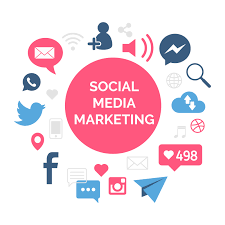
In today’s digital age, media marketing has become a cornerstone of successful business strategies. From social media platforms to traditional print and broadcast outlets, the power of media marketing lies in its ability to reach and engage with audiences on a massive scale.
Media marketing encompasses a wide range of channels and techniques, each offering unique opportunities to connect with consumers. Social media platforms like Facebook, Instagram, Twitter, and LinkedIn allow businesses to interact directly with their target demographic, build brand awareness, and cultivate loyal communities.
On the other hand, traditional media outlets such as television, radio, newspapers, and magazines continue to play a vital role in reaching broader audiences and establishing credibility. By strategically leveraging these channels, businesses can amplify their messaging and establish a strong presence in the market.
One of the key advantages of media marketing is its ability to create engaging and shareable content that resonates with consumers. Whether it’s a captivating video ad on YouTube or an informative article in a leading publication, compelling content has the power to captivate audiences and drive action.
Moreover, media marketing allows businesses to track and measure the effectiveness of their campaigns in real-time. Through analytics tools and performance metrics, marketers can gain valuable insights into audience behaviour, campaign performance, and return on investment. This data-driven approach enables businesses to refine their strategies for optimal results.
Ultimately, media marketing is not just about promoting products or services; it’s about building relationships with consumers and creating meaningful connections that drive long-term success. By harnessing the power of media channels effectively, businesses can elevate their brand presence, engage with their audience authentically, and achieve sustainable growth in today’s competitive landscape.
Media marketing is a strategic approach that focuses on leveraging various media channels, both digital and traditional, to promote products or services and engage with target audiences. Unlike traditional marketing, which typically involves one-way communication through channels like television, radio, and print advertising, media marketing embraces a more interactive and dynamic approach. It utilises social media platforms, online content, influencer partnerships, and other digital tools to create engaging experiences that encourage two-way communication between brands and consumers. By harnessing the power of multimedia content and real-time analytics, media marketing enables businesses to connect with audiences in a more personalised and impactful manner, driving engagement, brand loyalty, and ultimately, business growth.
When considering the effectiveness of social media platforms for media marketing, it is essential to evaluate each platform’s unique strengths and audience demographics. Facebook remains a popular choice for its vast user base and robust advertising options, making it ideal for reaching a broad audience. Instagram, known for its visual-centric approach, is highly effective for brands looking to showcase products or services creatively. Twitter’s real-time nature makes it suitable for engaging with audiences in conversations and trends. LinkedIn stands out for B2B marketing, offering a professional environment to connect with industry professionals. Ultimately, the most effective platform depends on the specific goals and target audience of the media marketing campaign.
In the realm of media marketing, a common query revolves around how businesses can gauge the effectiveness of their campaigns. The success of media marketing campaigns can be measured through various key performance indicators (KPIs) such as website traffic, click-through rates, conversion rates, social media engagement metrics, and return on investment (ROI). By analysing these metrics using analytics tools and tracking systems, businesses can gain valuable insights into the impact of their campaigns on audience behaviour and overall business objectives. This data-driven approach enables businesses to make informed decisions, refine their strategies, and optimise future campaigns for greater success in the dynamic landscape of media marketing.
Content creation plays a pivotal role in media marketing strategies by serving as the foundation upon which successful campaigns are built. Compelling and relevant content is the driving force behind engaging with audiences, establishing brand identity, and fostering meaningful connections. Whether it’s a captivating social media post, an informative blog article, or a visually stunning video, high-quality content has the power to capture attention, evoke emotions, and inspire action. By creating valuable and shareable content, businesses can effectively communicate their message, build credibility, and differentiate themselves in a crowded digital landscape. Content creation not only drives engagement but also forms the backbone of effective storytelling that resonates with consumers and drives them to connect with brands on a deeper level.
In the realm of media marketing, a frequently asked question revolves around the value of influencer marketing as a component of a comprehensive strategy. Influencer marketing has emerged as a powerful tool for businesses to connect with their target audience authentically through trusted voices in various niches. By leveraging influencers’ credibility and reach, businesses can amplify their brand messaging, increase brand awareness, and drive consumer engagement. When integrated strategically into a media marketing strategy, influencer partnerships have the potential to enhance campaign effectiveness, foster genuine connections with consumers, and ultimately yield significant returns on investment.